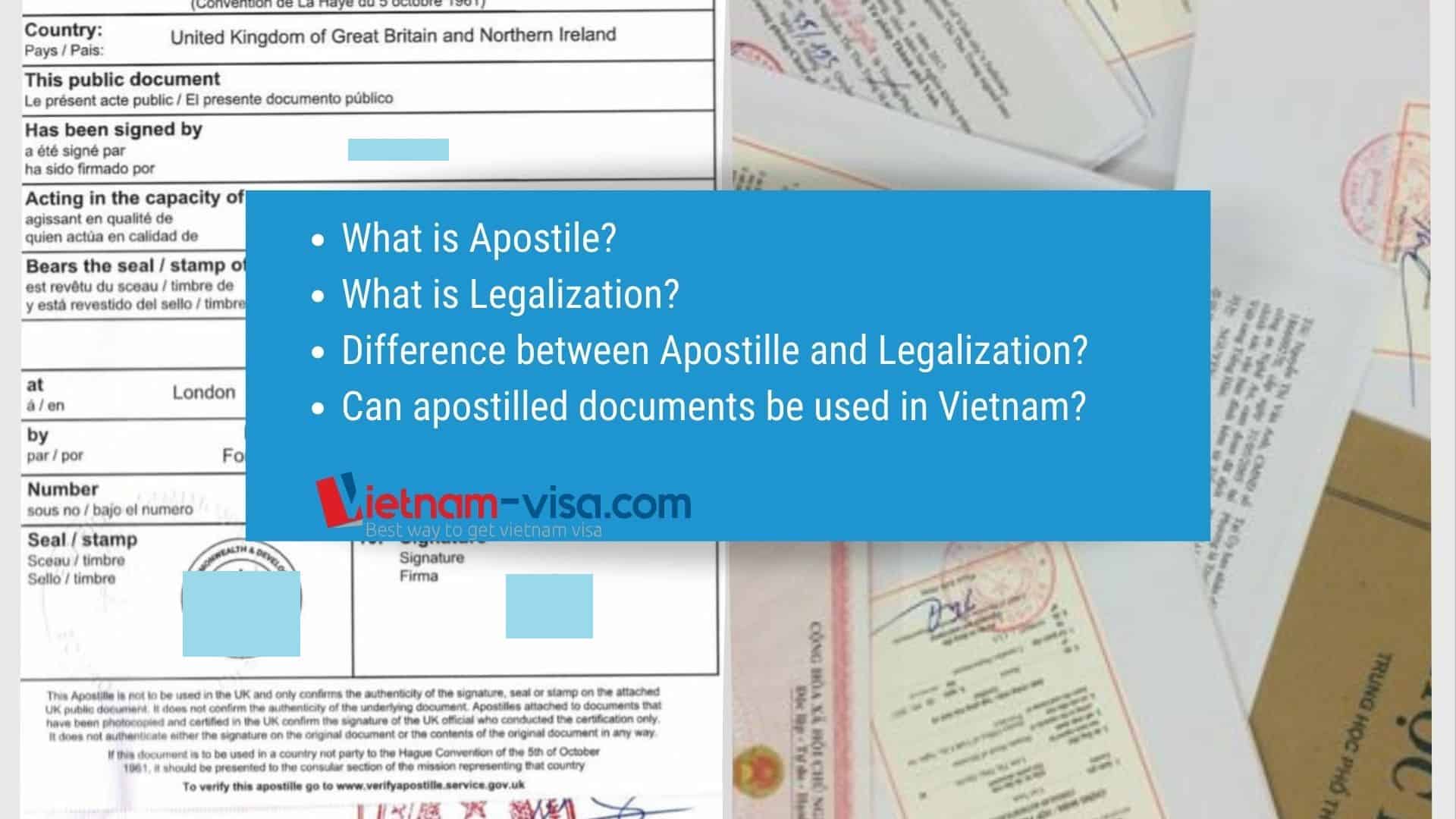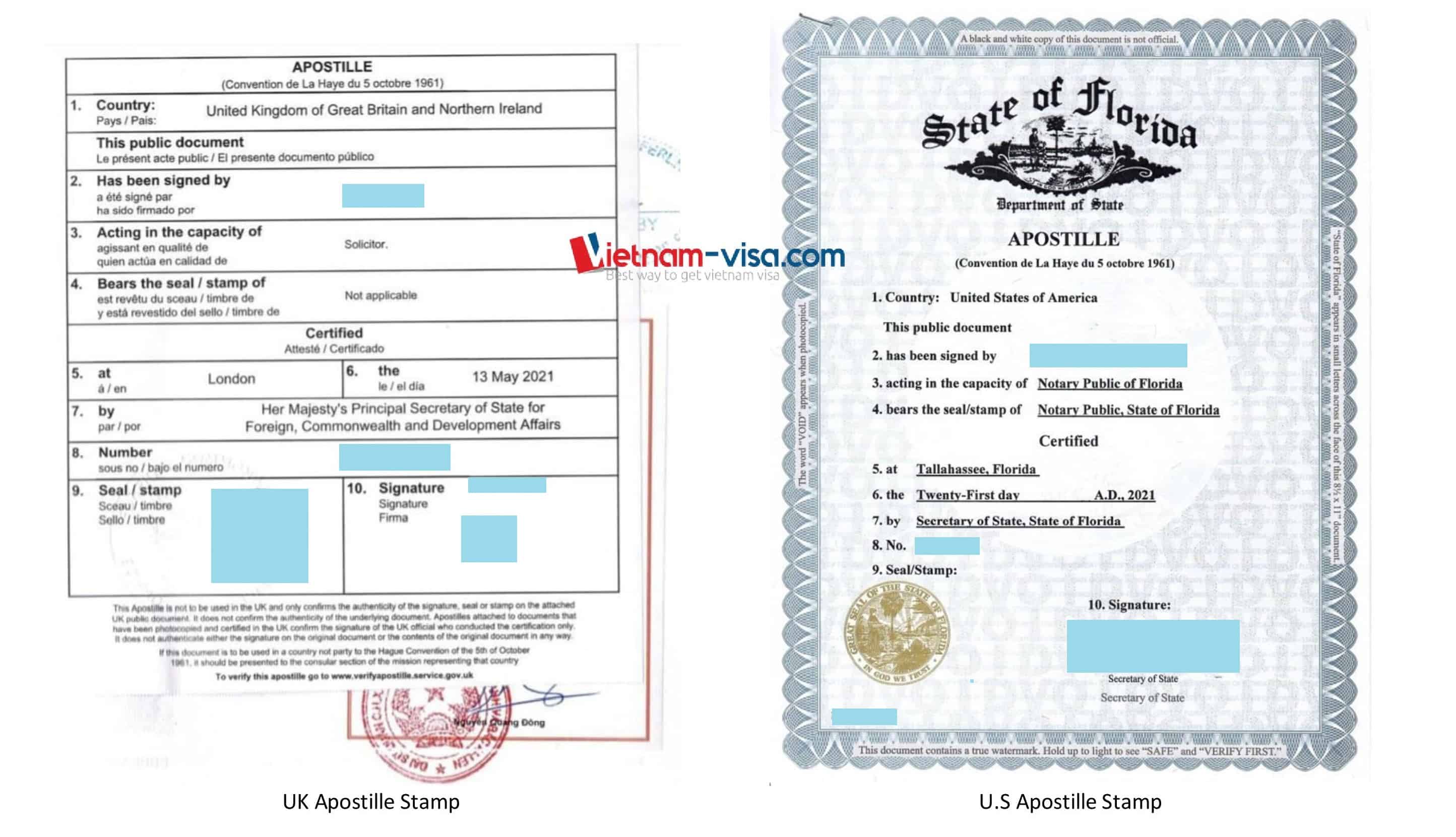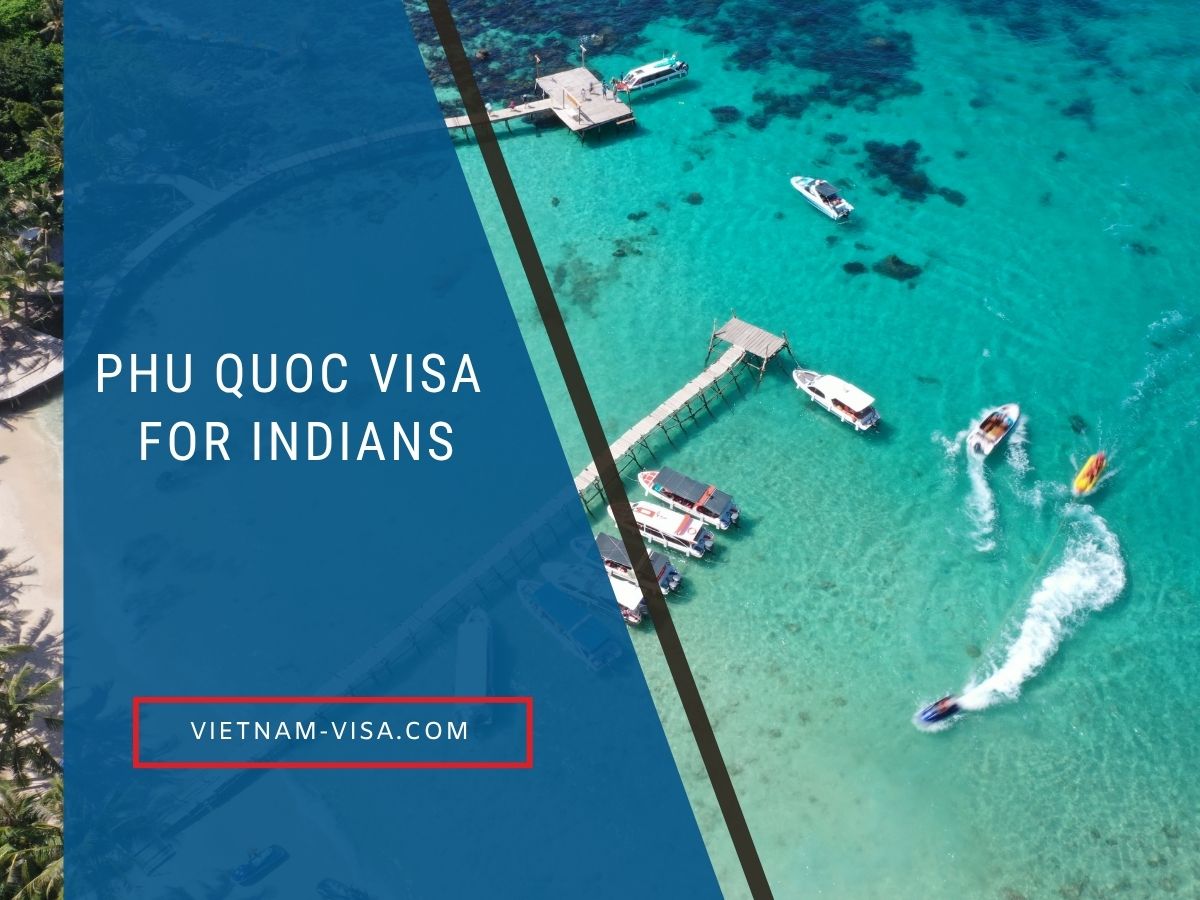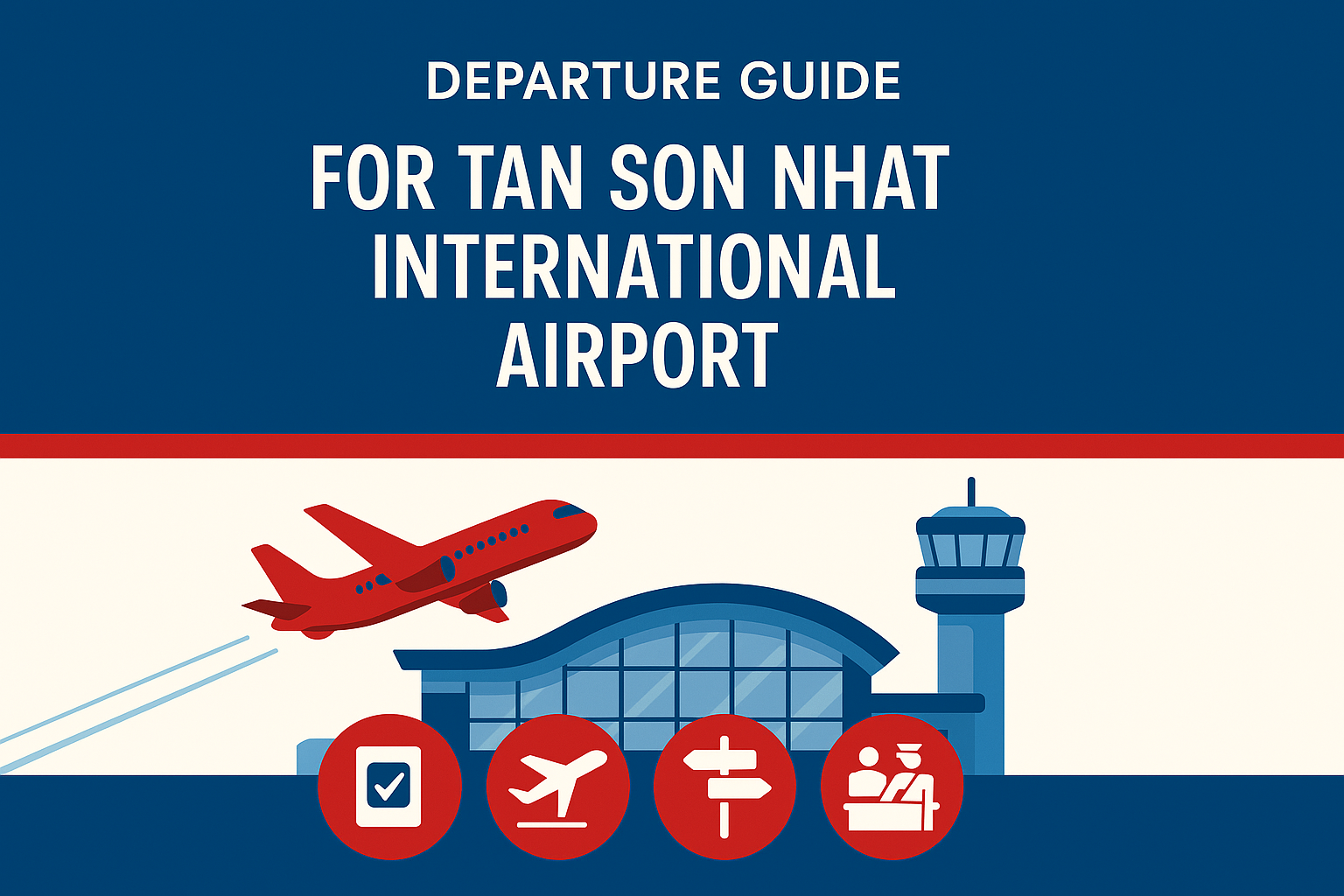You have a document issued outside Vietnam and you wish to use it in Vietnam. You then make a search on google for what you should do. Some results show that you need to get an apostille stamp, some suggest you to get it legalized. What you should do then. This post will give you the exact answer.

Table of Contents
1. What is Apostille?
An “apostille” is a form of authentication/certificate issued to documents for use in countries that participate in The Hague Convention of 1961 which is the convention on abolishing the requirements of legalization for foreign public documents. As such, it is also called as “Hague Apostille”
It certifies the authenticity of the signature and the capacity in which the person signing the document has acted and, where appropriate, the identity of the seal or stamp which it bears.
When a document is sealed with an Apostille stamp, it can be used in one of the Hague Convention countries without carrying out any further acts.
How does an Apostille stamp look?
An Apostille stamp (certificate) is normally a square and formatted into numbered fields. It is often stamped on the back of a document. However, when a document has print on both sides, it may be placed in the most suitable position, which may be on the front.
A typical Apostille certificate shows the following information:
- Country of issue
- Name of person who signed the document
- The capacity in which the person signed the document
- Details of any seal on the document
- Place of issue of Apostille certificate
- Date of issue
- Issuing authority
- Apostille Certificate number
- Stamp of issuing authority
- Signature of representative of issuing authority

List of Hague Convention Apostille countries
As last updated on the website of The Hague Conference on Private International Law (HCCH), there are, up to now, up to 120 contracting countries to the Apostille Convention (Hague Treaty Convention) as follows:
| Albania Andorra Antigua and Barbuda Argentina Armenia Australia Austria Azerbaijan Bahamas Bahrain Barbados Belarus Belgium Belize Bolivia Bosnia and Herzegovina Botswana Brazil Brunei Darussalam Bulgaria Burundi Cape Verde Chile China, People’s Republic of (Hong Kong & Macao Only) Colombia Cook Islands Costa Rica Croatia Cyprus Czech Republic Denmark Dominica Dominican Republic Ecuador El Salvador Estonia Eswatini (Swaziland) Fiji Finland France Georgia | Germany Greece Grenada Guatemala Guyana Honduras Hungary Iceland India Ireland Israel Italy Jamaica Japan Kazakhstan Korea (Republic of Korea) Kosovo Kyrgyzstan Latvia Lesotho Liberia Liechtenstein Lithuania Luxembourg Malawi Malta Marshall Islands Mauritius Mexico Republic of Moldova Monaco Mongolia Montenegro Morocco Namibia Netherlands New Zealand Nicaragua Niue Republic of North Macedonia | Norway Oman Palau Panama Paraguay Peru Philippines Poland Portugal Romania Russian Federation Saint Kitts and Nevis Saint Lucia Saint Vincent and the Grenadines Samoa San Marino Sao Tome and Principe Serbia Seychelles Singapore Slovakia Slovenia South Africa Spain Suriname Sweden Switzerland Tajikistan Tonga Trinidad and Tobago Tunisia Turkey Ukraine United Kingdom of Great Britain and Northern Ireland United States of America Uruguay Uzbekistan Vanuatu Venezuela |
Who can issue an Apostille?
In most cases, the competent authority which can issue an apostille stamp is the Ministry of Foreign Affairs of the document’s issuing country.
Which documents are eligible for an Apostille certificate?
According to The Hague Convention 1961, an Apostille stamp is issued for public documents of Apostille countries which are:
- documents emanating from an authority or an official connected with the courts or tribunals of the State, including those emanating from a public prosecutor, a clerk of a court or a process-server (“huissier de justice”);
- administrative documents;
- notarial acts;
- official certificates which are placed on documents signed by persons in their private capacity, such as official certificates recording the registration of a document or the fact that it was in existence on a certain date and official and notarial authentications of signatures.
The public documents under the Convention shall not be:
- documents executed by diplomatic or consular agents;
- to administrative documents dealing directly with commercial or customs operations.
2. What is legalization?
As also defined in the Hague convention 1961, legalization means the formality by which the diplomatic or consular agents of the country in which the document has to be produced certify the authenticity of the signature, the capacity in which the person signing the document has acted and, where appropriate, the identity of the seal or stamp which it bears.
For documents to be used in Vietnam, the authority competent for a Vietnam consular legalization can be:
- the Ministry of Foreign Affairs of Vietnam, or
- Embassy/Consulate of Socialist Republic of Vietnam in foreign countries.
The legalization often follows the step of authentication of documents by the competent authority of the issuing country unless the involved documents are exempted from the authentication step. And it is the required process for non-public documents of Apostille countries or all documents of non-Apostille countries.
3. Difference Between the Apostille and Legalization
Is Apostille the same as Legalization is the most frequently asked question when it comes to those terms.
Normally, they are the same in purposes of use. However, they are completely different in terms of applicable countries and documents, and procedures of which the legalization is much more complicated.
|
Criteria |
Apostille |
Legalization |
|
Purposes of use |
Both apostilled and legalized documents will be used in a country rather than their issuing ones for the following common purposes:
|
|
|
Applicable countries and documents |
Public documents of Apostille countries |
Non-public documents of Apostille countries and all documents of non-Apostille countries |
|
Procedure |
The Apostille procedure often involves in 02 steps as follows:
|
The legalization procedure often involves in 03 steps as follows:
|
|
Fee |
Apostille fee is lower than the full legalization fee. |
|
4. Can I use my apostilled document in Vietnam?
No. Vietnam is not a contracting party to the Hague Convention, as such an Apostille stamp is not valid for Vietnam.
In case your document’s issuing country is a Hague Convention Apostille country and your document is eligible for an apostille certificate, you still need to have it legalized by the Vietnam embassy/consulate after getting it apostilled.
👉 Check How to legalize documents for Vietnam
So, we are now sure that you clearly know how to deal with your documents if you wish to use them in Vietnam.
👉 Should you have any questions, feel free to contact us at:
- Hotline/WhatsApp/Viber/Zalo: +84.946.583.583
- Email: [email protected]








